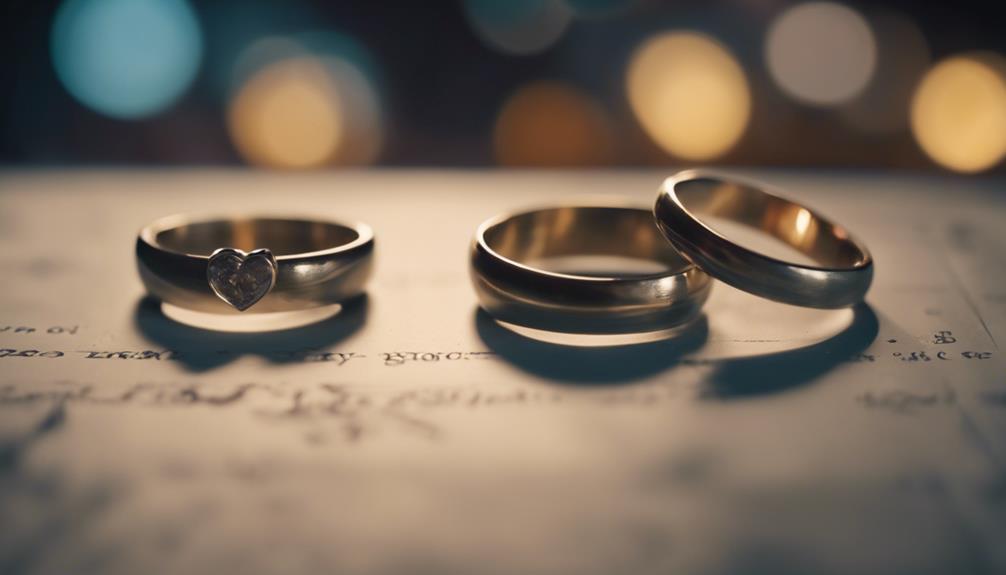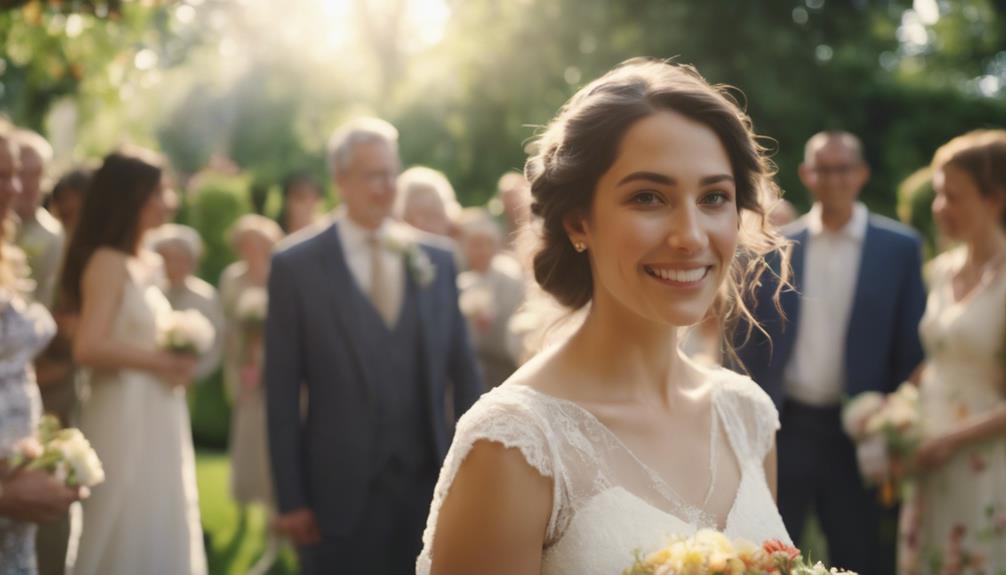The ideal age for you to get married is between 28 and 32. In this age range, you’re likely to enjoy greater emotional maturity and financial stability, which can enhance your relationship dynamics. Marrying in this window also correlates with lower divorce rates. It’s risky to marry before 25 because the chances of divorce are considerably higher. With maturity, financial independence, and previous relationship experiences, you’re better equipped for a lasting marriage. Continue to discover more about how timing impacts relationship success and personal fulfillment.
Optimal Age Range for Marriage

The ideal age range for women to marry is between 28 and 32, as this period aligns with greater emotional maturity and lower divorce rates.
This age range is considered the best age because it allows you to reach a level of emotional maturity that can greatly enhance your relationship. Studies have shown that women who marry in their late 20s to early 30s are better equipped to handle the complexities of marriage due to their increased life experience and emotional stability.
Marrying within this prime age range also correlates with lower divorce rates. Research indicates that women who marry before 25 face a higher risk of divorce, while those who marry at 28 to 32 experience fewer marital disruptions.
In fact, marrying at 25 makes you over 50% less likely to divorce compared to marrying at 20. This is because, by your late 20s, you likely have a clearer understanding of your life goals and values, which contributes to a stronger marital foundation.
Additionally, waiting until this age range often means you’ve achieved greater financial stability, another essential factor in marital success.
Emotional and Financial Stability
Marrying between the ages of 28 and 32 often means you’ve achieved significant emotional and financial stability, setting the stage for a successful marriage.
During these years, emotional maturity typically peaks, allowing you to navigate complex relationship dynamics more effectively. This maturity guarantees you’re better equipped to handle the inevitable ups and downs that come with married life.
Financial stability is another key factor that solidifies this age range as a prime time to get married. By your late 20s to early 30s, you’ve likely established your career path and financial independence, reducing financial stress, which is a common strain on marriages. This stability allows for better decision-making and long-term planning, contributing to a healthier relationship.
Here’s why marrying at this age can be advantageous:
- Emotional maturity: You’re better at handling conflicts and understanding your partner’s needs.
- Financial stability: You’re less likely to experience financial struggles that can strain a relationship.
These factors collectively enhance your ability to build a strong, enduring partnership, making this age range ideal for tying the knot.
Risk Factors and Divorce Rates

In light of various studies, getting married before age 25 greatly heightens your risk of divorce due to ongoing personal changes and instability. When you marry young, you’re likely still figuring out who you are and what you want from life, which can lead to conflicts and unmet expectations. Consequently, divorce rates are higher for marriages formed at a younger age.
As you approach your late 20s and early 30s, the likelihood of divorce decreases considerably. This period usually coincides with greater emotional readiness and valuable life experience, making you more prepared to handle the challenges of marriage. Statistics show that each additional year married before age 32 reduces the odds of divorce by approximately 11%. This suggests that waiting until you’re more mature and stable can provide a stronger foundation for a lasting partnership.
However, marrying later in life, specifically after age 32, comes with its own set of risks. Divorce rates tend to increase by about 5% annually after this age. Established habits and fewer compatible partners can make it harder to adapt and compromise, which are essential for a successful marriage. Balancing the timing of emotional readiness and life experience is key for a lower-risk, fulfilling marriage.
Impact of Previous Relationships
Having previous relationships can provide valuable insights into what you truly need and want in a partner, enhancing marital satisfaction. When you’ve had past relationships, you learn more about your own preferences, deal-breakers, and what dynamics work best for you. This self-awareness is essential when you decide to get married.
People who marry at an older age, particularly after 25, often bring fewer complications from past relationships into their marriage. This means fewer issues like ex-spouses or children, which can affect the stability of a new marriage. The experience from previous relationships helps you develop better relationship skills and emotional maturity, leading to:
- Higher levels of satisfaction: You’ve learned what works and what doesn’t.
- More realistic expectations: You’re less likely to marry based on infatuation and more on true compatibility.
As you grow older and gain more relationship experience, you’re likely to have a clearer understanding of your needs and how to meet your partner’s needs. This understanding not only fosters a more resilient partnership but also enhances your overall satisfaction in marriage.
Signs You Are Ready

Recognizing when you’re ready for marriage involves evaluating your emotional maturity, financial stability, and shared values with your partner.
Emotional maturity is important; by your late 20s, you’ve likely developed the ability to navigate complex situations and communicate effectively. This maturity is one of the best indicators that you’re ready for the commitment marriage entails.
Personal growth plays a significant role too. Experiences and lessons learned over the years shape your understanding of what you want in a partner and a relationship. When you feel confident in your personal identity and life choices, it suggests you’re more prepared for a lasting partnership. This growth often peaks for many women between ages 28 and 32.
Financial stability is another key factor. Having a solid financial foundation not only reduces stress but also contributes to relationship satisfaction. It’s important to establish your independence and make sure you can contribute equally to the partnership.
Lastly, shared values with your partner are fundamental. They reflect compatibility and mutual understanding, which are crucial for a healthy marriage. If you and your partner align on core beliefs and goals, it’s a solid sign you’re ready to take the next step.
Conclusion
So, if you’re wondering when’s the best time to tie the knot, aim for ages 28 to 32.
By then, you’ve likely got the emotional and financial stability needed for a strong marriage.
You’ve learned from past relationships and are better equipped to avoid divorce.
Trust in the timing; it plays a vital role in building a successful and enduring partnership.
You’re ready to make informed decisions about your future.



